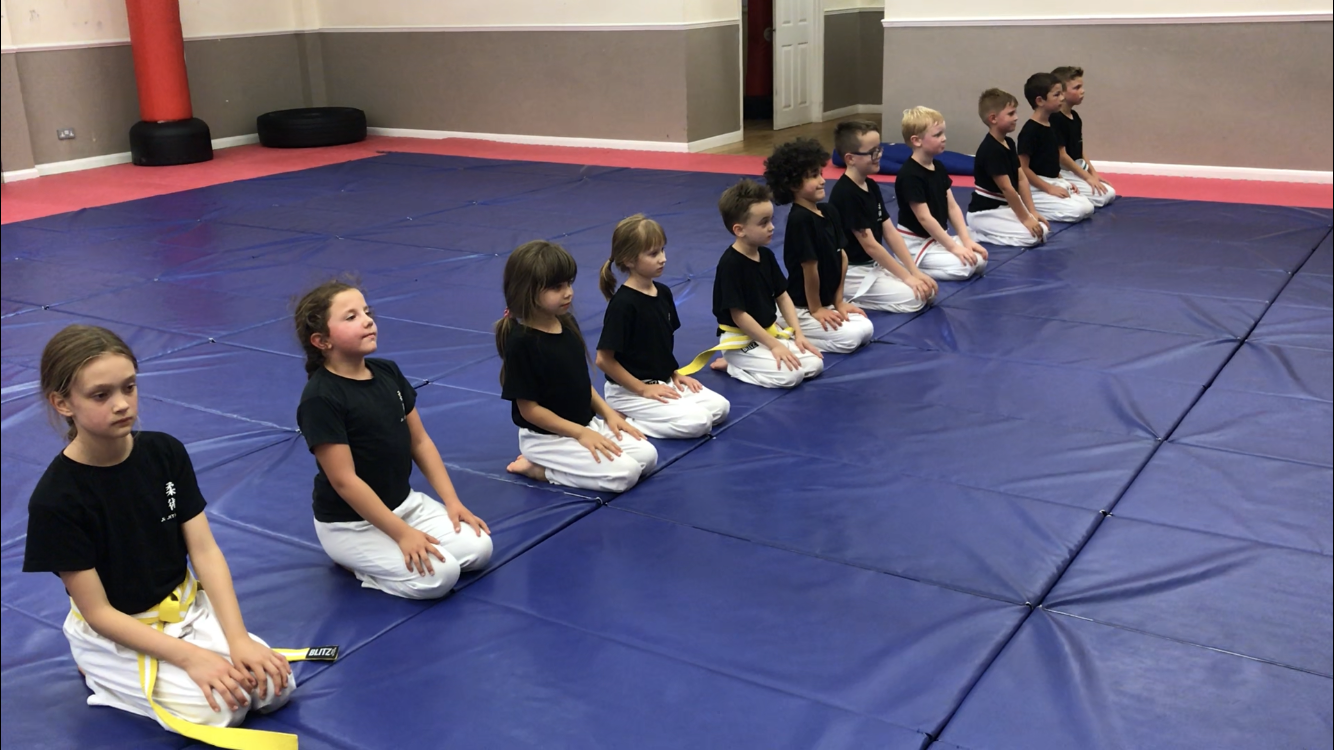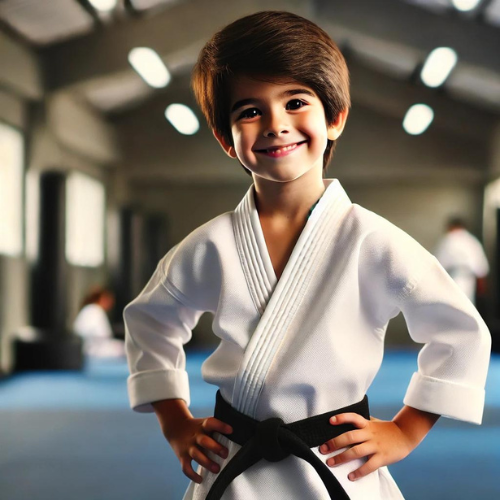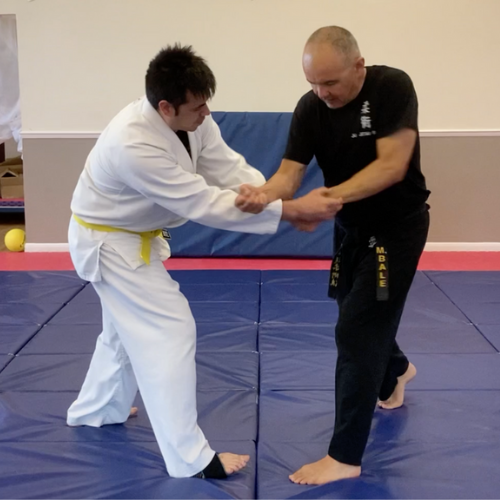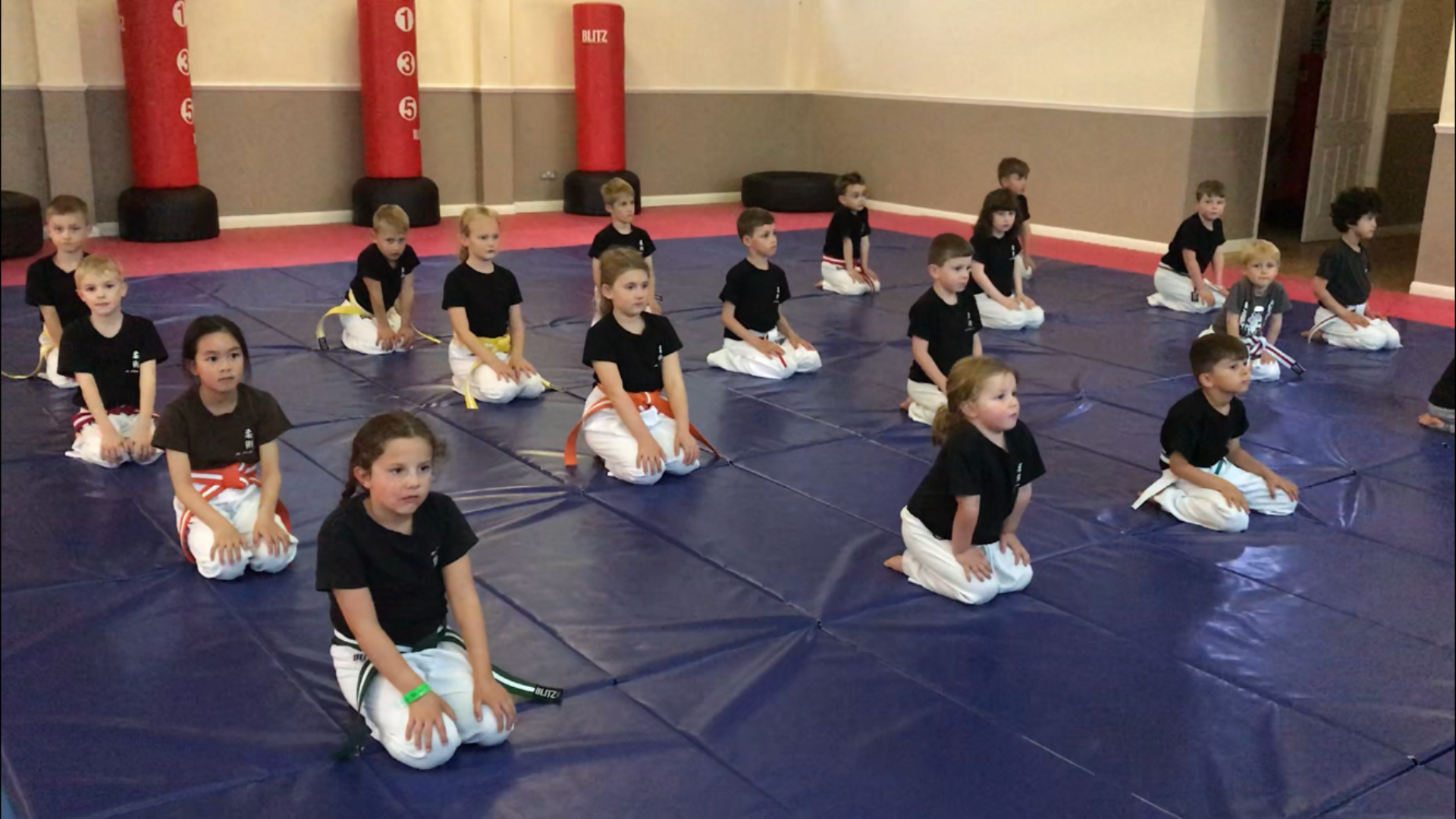Empowering Young Minds
How Martial Arts Can Benefit Children with Autism

Martial arts encompass more than just physical combat techniques;
they offer an array of benefits that extend to various aspects of life. For children with autism, participating in martial arts can be a transformative experience, providing a safe and nurturing environment that supports their growth and development. In this article, we will explore the unique advantages of martial arts for children with autism.
Enhancing Physical Coordination and Motor Skills: Children with autism often face challenges with motor skills and coordination. Martial arts training, with its structured movements and routines, can significantly improve their physical abilities. Disciplines like karate, taekwondo, or judo help develop balance, flexibility, strength, and fine motor control, contributing to their overall physical well-being and boosting self-confidence.
Fostering Discipline and Focus: Martial arts instill discipline and focus through adherence to rigorous training routines and protocols. For children with autism, who may struggle with attention and impulsivity, the structured nature of martial arts can be particularly beneficial. Regular practice cultivates focus, self-control, and the ability to follow instructions, which are essential skills for daily life.
Encouraging Social Interaction and Communication: Social interaction and communication can be challenging for children with autism. Martial arts classes provide a supportive environment where children can engage with their peers in a non-competitive and non-judgmental setting. Through partner exercises, group activities, and shared goals, they develop social skills, learn cooperation, and build friendships.
Boosting Self-Esteem and Confidence: Martial arts achievements, such as belt promotions, can significantly boost self-esteem and confidence in children with autism. As they progress in their training, they gain a sense of accomplishment and pride in their abilities. Positive reinforcement from instructors and peers further reinforces their belief in themselves.
Managing Anxiety and Stress: Children with autism may experience heightened anxiety and stress due to sensory sensitivities and difficulties in processing emotions. Martial arts offer a healthy outlet for releasing pent-up energy and stress. The physical activity, combined with deep breathing and meditation techniques practiced in some disciplines, can help children regulate their emotions and reduce anxiety.
Teaching Conflict Resolution and Anti-Bullying Skills: Martial arts emphasize respect for others and non-violent conflict resolution. Children with autism can benefit greatly from learning to handle conflicts peacefully, as they may face difficulties in recognizing social cues and boundaries. Additionally, martial arts equip them with skills to defend themselves in case of bullying, fostering a greater sense of empowerment and safety.
Conclusion: Martial arts provide a holistic and inclusive approach to supporting children with autism. Beyond physical fitness and self-defense, these disciplines offer valuable life skills that promote personal growth and social integration. The combination of structured routines, supportive environments, and the nurturing guidance of instructors can have a profoundly positive impact on the lives of children with autism, empowering them to face life's challenges with confidence and resilience.
References:
-
"The Impact of Martial Arts Training on Balance and Coordination in Children with Autism Spectrum Disorder." Journal of Autism and Developmental Disorders, Springer, Link: https://link.springer.com/article/10.1007/s10803-018-3660-3
-
"Effects of Martial Arts on Behavioral and Psychological Symptoms in Individuals with Autism Spectrum Disorder." Focus on Autism and Other Developmental Disabilities, SAGE Journals, Link: https://journals.sagepub.com/doi/abs/10.1177/1088357617735516



